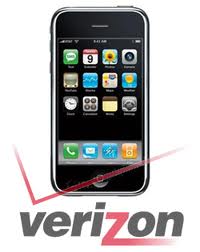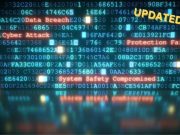 A Seattle Times poll of Seattle-area iPhone users proves that the AT&T-contracted smartphone users are a loyal group.
A Seattle Times poll of Seattle-area iPhone users proves that the AT&T-contracted smartphone users are a loyal group.
Asked if they’re happy with their iPhone on AT&T’s network in the Seattle area, 53 percent of respondents said yes and 5 percent said they don’t care too much about the network. Another 44.8 percent said the network is not great or awful.
That satisfication tracks to the percentage of iPhone users wanting to switch to Verizon. Asked if they’ll buy a new Verizon iPhone to get better service, 58 pecent said no or probably not. About 4 percent said they don’t care. Among those leaning toward a Verizon iPhone, 15.5 percent said they’re absolutely making the switch, right away; 23 percent said maybe.
One of the retention steps AT&T is reported as taking is offering a free Microcell antenna to current large account users. The Microcell piggybacks VOIP to hand off cellular phone calls from iPhones.
For Verizon customers who did not act swiftly enough to reserve a phone on Feb 3rd, the current inventories available for advanced sales have sold out.
So does the Verizon versipon of the iPhone provide better service? Wall Street Journal Personal Technology columnist Walt Mossberg — who has had lots of dropped calls on AT&T — said it’s a big improvement:
“On the big question, I can say that, at least in the areas where I was using it, the Verizon model did much, much better with voice calls. In numerous tries over nine days, I had only three dropped calls on the Verizon unit, and those were all to one person who was using an AT&T iPhone in an especially bad area for AT&T: San Francisco. With the nearly identical AT&T model, I often get that many dropped calls in one day.”
But Mossberg also clained that data speeds were much slower on Verizon.
“Calls on the Verizon unit were mostly crisp and clear, including speakerphone calls and those made over my car’s Bluetooth connection. On my first full day of testing, I did have several Verizon calls that dropped out for a few seconds, before recovering. Apple attributed this to a very minor glitch I’d encountered in my initial setup of the phone and urged me to reboot it. I did and suffered no more momentary dropouts.”
A new Apple iOS app called Coverage overlays the maps of a particular area to see who has the best coverage at a glance. It is available for $1.99 form the Apple App Store. [24×7]
WhitePages.com’s Ban the Phone Book Initiative Announces $10,000 Research Grant
WhitePages.com and its Ban the Phone Book (http://www.banthephonebook.org) initiative have announced the results from a December online survey conducted on its behalf by Harris Interactive. The survey shows that nearly 7 out of 10 American adults rarely or never use the white pages phone book for looking up phone numbers and addresses for people or businesses, 87 percent support opt-in initiatives where they would receive the phone book only if requested, and 60 percent of online adults find the contact information they need through online channels (online directories — 29 percent, search engines — 28 percent or social networks — 3 percent).

The survey also discovered that only 22 percent of adults recycle their white pages phone books, which supports Ban the Phone Book’s estimate that 165,000 tons of white pages phone books end up in landfills every year. Ban the Phone Book’s current research also estimates that five million trees are needed per year to publish white pages phone books and that up to $17 million in annual taxpayer money is used to fund recycling fees.
To further research the environmental impact and taxpayer costs of producing phone books, WhitePages.com is announcing a $10,000 research grant for one student at an accredited university. With the grant, Ban the Phone Book aims to capture timely and accurate research that provides greater environmental and economic details about the production, distribution and disposal of white pages phone books. Ban the Phone Book will then effectively share those findings with appropriate constituents — citizens, policymakers, telephone companies, and academic communities to help them make informed decisions about existing phone book policies. [24×7]

















